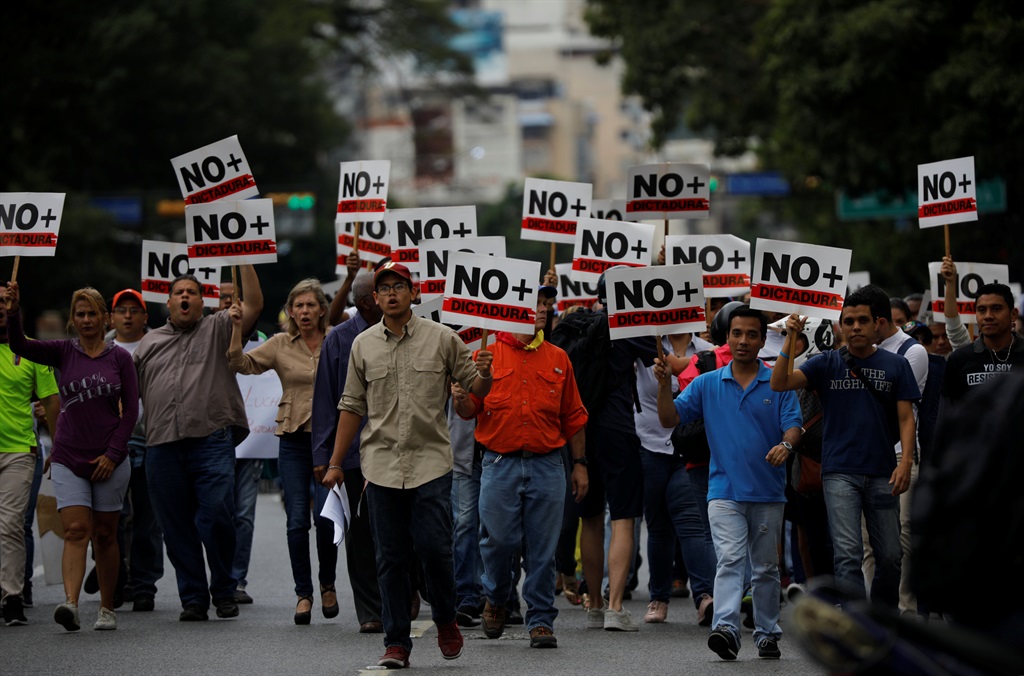After an election marred by a boycott from the opposition and allegations of vote-rigging, Nicolás Maduro was sworn in for a second term as Venezuelan president. The whole election process and the result have led to large anti-Maduro protests. Instead of engaging with the opposition, Maduro’s government has imposed crackdowns on the protestors, with violence being the order of the day. Every day we see photos and videos of the human rights violations perpetrated by this government. It is imperative that we tie such real-world examples to the philosophy which birthed them – socialism. In South Africa, we must be wary of and fight against government policies and actions that encroach upon our individual rights. If we do not, we will head down the Venezuelan path.
What is socialism? The most widely held understanding is that socialism is a political and economic theory of social organisation which advocates that the means of production, distribution, and exchange should be owned or regulated by the community as a whole. That is the sanitary, clean definition. The problem is that people do not understand what it means philosophically. Socialism places the group, usually the group which finds itself in power at a given time, above the individual in the metaphysical ladder of importance. This means that all other groups become expedient to the goals of the group in power. Philosophically, as long as you view any group, or society, as being more important than the individual, you open the door to socialism.
When an “undesired” group, be it business people, black people, white people, Jewish people, foreigners, or anyone “in opposition” gets in the way of the goals and projects of the group in power, those deemed undesired will be removed using whatever means available. The socialist government of Venezuela has targeted various groups throughout the years and blamed them for its failures.
Hugo Chávez set Venezuela down the socialism path into the hell-hole it is today. From 2000 to 2013, government spending rose from 28% to 40% of GDP. The minimum wage has been raised time after time. Instead of being based on businesses and corporations, the Venezuelan economy was rejigged to be based on co-ops. Venezuela’s oil industry was officially nationalised in 1976. After Chávez assumed the presidency in 1999, the government took more control of the oil industry. The people were promised that the government would take responsibility for manufacturing and selling, and that profits would be used for the “good of society”.
But as regularly happens when governments assume the central role in any sector of the economy, inefficiency and corruption became the order of the day. The most devastating impact of nationalisation was that it drove investment away. When the property of businesses, both domestic and foreign, is not secure from arbitrary seizure by a government, it leaves them with no reason to stay. Property rights are a long-forgotten concept in Venezuela – “ownership” of anything means very little. Socialism has caused Venezuela’s economy to collapse – at the end of 2018, its annual inflation rate was 80 000%.

Supporters of Venezuelan opposition leader and self-proclaimed interim president Juan Guaido take part in a protest against Venezuelan President Nicolas Maduro’s government in Caracas, Venezuela, on Wednesday (January 30 2019). Picture: Carlos Barria/Reuters
What steps could be taken to help turn Venezuela around? A new president, no matter how charming or smart, will not bring about the change the people need. Real, concrete reforms are needed. Constitutional protection of individual property rights, freedom of speech, the establishment of the rule of law, protection of arbitrary seizure of businesses – these are just some of the pro-freedom, pro-individual measures which the country must adopt if the people are to get back on their feet and build their own lives again. It is not about what is best for the country, or best for Venezuelan society – it should be about what is best for the individual in Venezuela.
The SA government recognises Maduro as the legitimate president, despite all the evidence of what he has done to his people. Just last week, International Relations Minister Lindiwe Sisulu said that “we recognise the duly-elected‚ democratically elected president of Venezuela until such time as he [Maduro] steps down‚ or until such time as there is an election”.
Governments that back Maduro are failing to make moral judgements regarding his actions in causing the suffering of the Venezuelan people.
Economically, we have seen the devastating effects of socialism all over the world. Socialism in Venezuela has led to starvation on a widespread scale, medical shortages at a critical level, a crime explosion throughout the country, and a refugee crisis on par with that of Syria.
From a pragmatic perspective, socialism does not “work” because governments are incapable of running economies. From a moral perspective, socialism can never ‘work’ because it is fundamentally opposed to human freedom. Socialism cannot be considered moral because it is premised on force; that the proper role of government is to force people to live their lives as it deems best.
Apartheid socialism made life miserable for the majority of South Africans and it will be a travesty of justice if more socialism should be inflicted on them by their chosen leaders.
Chris Hattingh is a Researcher at the Free Market Foundation
This article was first published in City Press on 31 January 2019